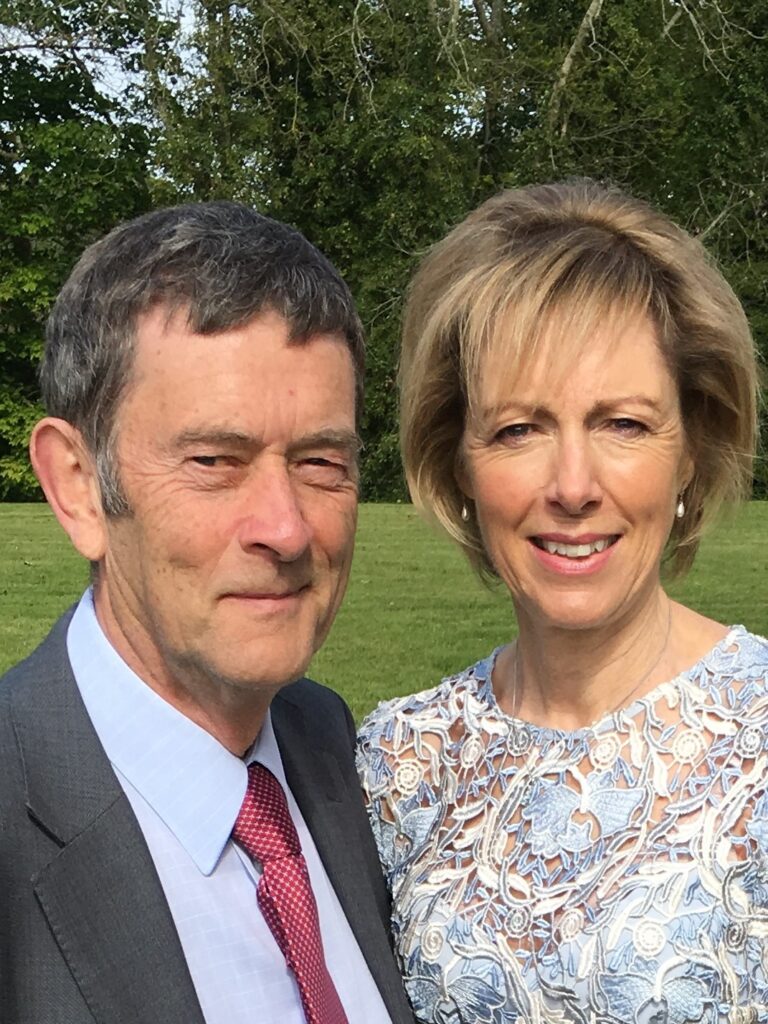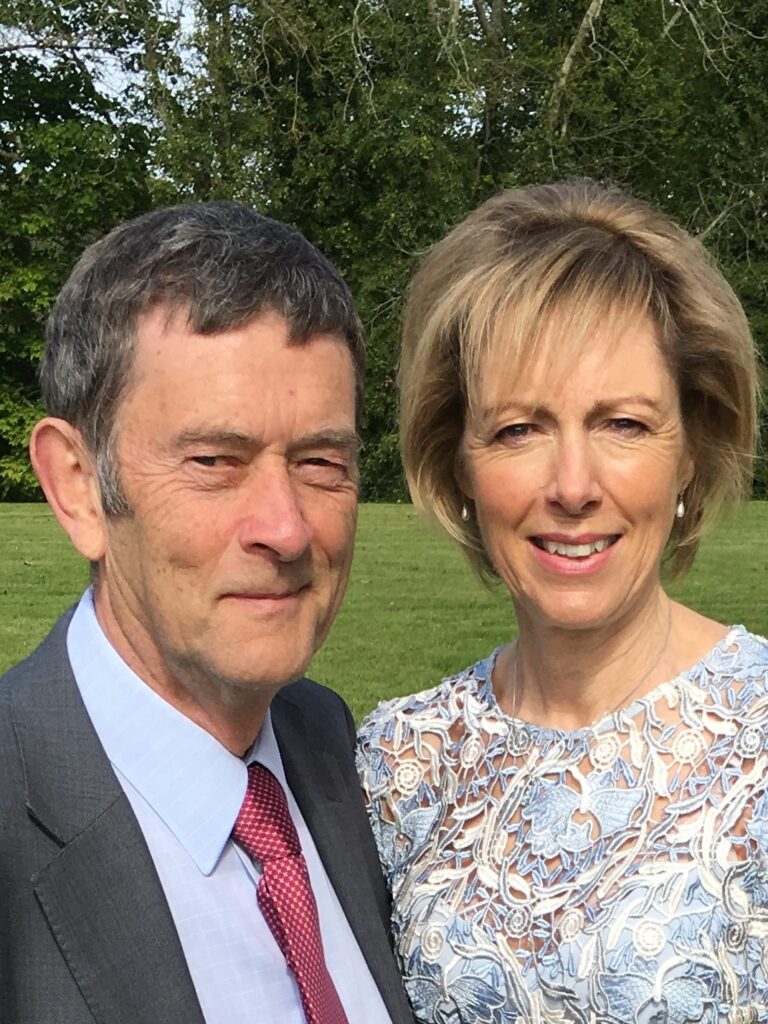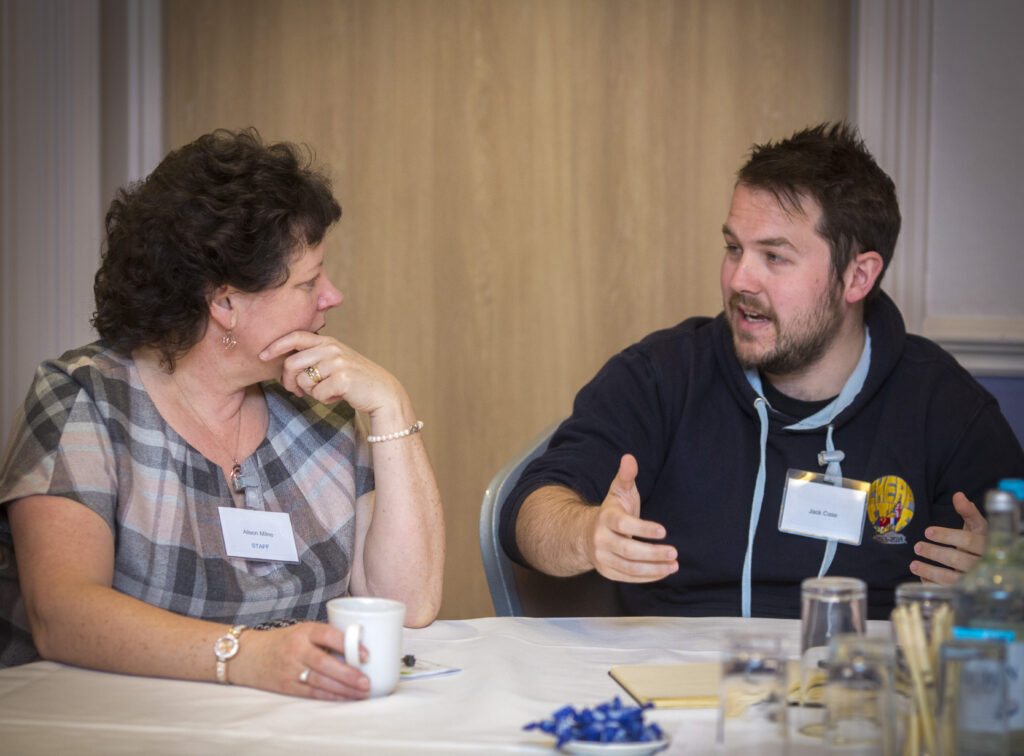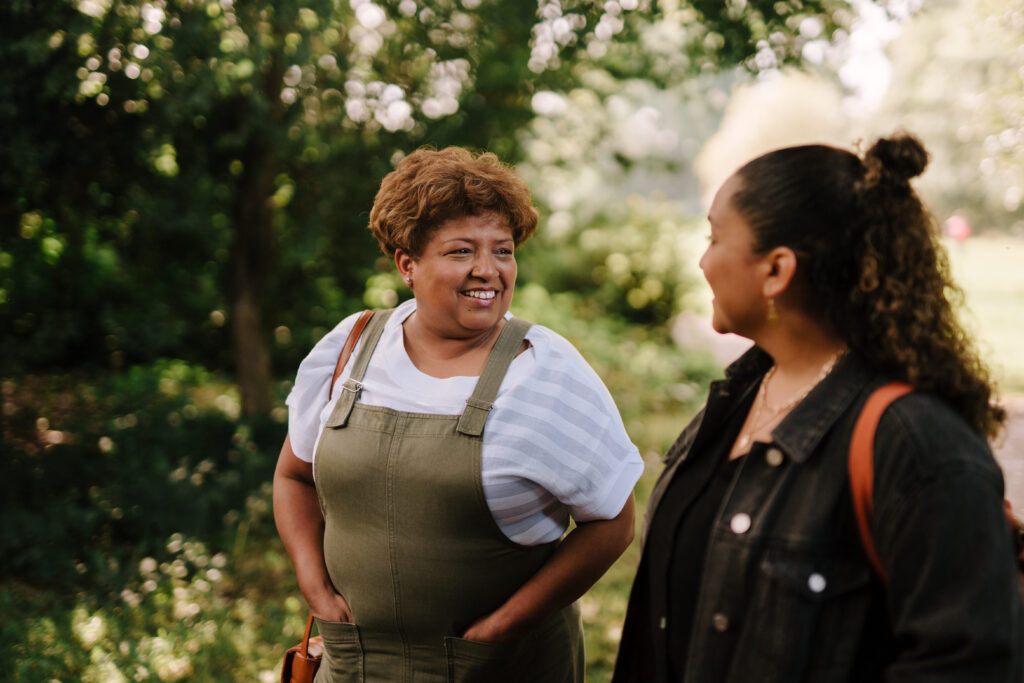How it started
My name is John Budd and I am a hypopituitarism patient, and now also the support group leader for The Pituitary Foundation Oxford Support Group, along with my very supportive wife Cathy.

My Story
My pituitary story started in October 2010, when I was working as an IT management consultant, and travelling frequently. The first time I realised there was something wrong was while we were on holiday, cycling on the wonderful Mining Trail in Cornwall. I suddenly felt abnormally weak and weary and I had to stop cycling. Eventually after a good rest, I managed to complete the route.
It took over a year to get my condition diagnosed. During that time I had lots of medical appointments with all kinds of specialists, but my eventual diagnosis was somewhat accidental – I was being investigated by a neurologist for an unrelated problem and a MRI scan showed an enlarged pituitary which was fortunately noticed. Blood tests confirmed a hormonal imbalance, and the neurologist put two and two together and realised I had a pituitary problem. I started on some initial replacement hormone medication shortly after and felt my condition improved, though I was nowhere near back to normal.
Some months later I was sitting in the departure lounge of Edinburgh airport in September 2011 after a hard day with a client group and I suddenly felt exhausted, and realised that I just couldn’t keep working. I was constantly weary, had mood swings, was depressed, I was worrying about my health, and had become very introspective. I stopped working shortly after that.
When attending a Pituitary Foundation conference in Sheffield in 2012, I heard about growth hormone and the benefits it brought to some patients. This was something that my own endocrinologist had never suggested but I was determined to try it as and eventually had it prescribed. It helped me a lot with improved energy and mood.
In December a scan revealed that my tumour was now very close to the optic nerve, so I had transsphenoidal surgery to remove the pituitary growth, which has not regrown to date, though I continue to need hormone replacement. Throughout this, my wife Cathy was so supportive that I manged to get through the worst of it and set about finding some kind of new equilibrium in my life. I am still challenged in various ways, but things have improved considerably.
Finding The Pituitary Foundation
When Cathy and I first came across The Pituitary Foundation in May 2012, we were at a stage where we were struggling with trying to understand this condition. Attending the conference in Sheffield that year was the best thing we could have done. Good grief! I wasn’t the only one with these weird feelings, mood swings, lack of energy, and other problems! Here was a whole room full of people with similar issues. In a way this was sad, but it also made me realise for the first time, I am not alone with this problem.
We learnt so much from the experts and took much comfort from meeting others who were experiencing similar problems to us. We also learnt about the local support groups and subsequently attended our first Oxford Support Group meeting, held at one of the Oxford colleges. Cathy and I continued to attend many subsequent meetings and conferences, making a number of friends along the way.
Becoming the Oxford Support Group Leader
The Oxford Support Group moved from being hosted at an Oxford college, to a church hall west of Oxford. Cathy and I continued to attend, enjoying and learning from many interesting guest speakers over that time. In June 2017, we offered to take over the Oxford support group leader role from Mark Heath, who had done a fantastic job, and our offer was accepted.
We have continued to hold about four or more meetings a year. In 2017, through consultation with the specialist nurses at the Churchill Hospital (where most pituitary patients from the Oxford area first come into contact with the pituitary medical support services), we relocated our meetings to the hospital. I think this helped the group, as patients were familiar with this location and the specialist nursing staff were always on hand at our meetings, which proved to be a great informal way to discuss any challenges patients had. We introduced informal social meetings (mainly pub lunches) in 2019, with the aim of bringing the group together a bit more.
When Covid-19 hit us, the Churchill Hospital became impossible to use and we started using Zoom to keep the communication lines open. This proved to be very successful as we were still able to get guest speakers to join us and our attendance increased. Since Covid, we continue to hold many of our meetings on Zoom but we compliment these with regular social get-togethers.
We have had many Saturday pub lunch meetings in various locations outside Oxford, and have had several summer garden parties. We are now occasionally using the Manor Hospital in Oxford for meetings. We have had some great guest speakers including endocrinologists, neurosurgeons, a psychologist and some members of The Pituitary Foundation too. We are particularly grateful for the support given to Oxford group by Professor John Wass who regularly attends our meetings, and has provided invaluable advice and support to so many of our patients.
The future
I believe the time that pituitary patients (and carers) need the most support is when they are first diagnosed, when they may be in a state of disbelief, shock or trauma. Our hope is that all Oxford pituitary patients, but particularly those newly diagnosed, get to know about our support group so that they can realise they are not alone, that there are others enduring similar problems who they can meet and exchange experiences with and learn from. We have some very supportive people helping us in many ways, and I thank all of them for their encouragement.










